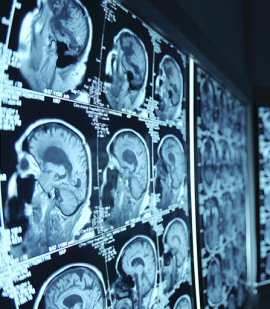 A study by researchers at the Yale School of Medicine has found that high levels of testosterone can lead to a disastrous loss of brain cells. The research, published in the Journal of Biological Chemistry, indicated that raised testosterone levels from steroid use or testosterone replacement therapy (used to treat male menopause) were enough to trigger neurodegenerative effects in the brain.
A study by researchers at the Yale School of Medicine has found that high levels of testosterone can lead to a disastrous loss of brain cells. The research, published in the Journal of Biological Chemistry, indicated that raised testosterone levels from steroid use or testosterone replacement therapy (used to treat male menopause) were enough to trigger neurodegenerative effects in the brain. "Next time a muscle-bound guy in a sports car cuts you off on the highway, don't get mad, just take a deep breath and realize that it might not be his fault," said study author Barbara Ehrlich, adding that the highly aggressive tendencies observed in steroid users could be evidence of the alterations in neuronal function taking place in the brain.
Ehrlich explained that in the brain, testosterone acts as a neurosteroid and can induce changes at the cellular level, which can in turn lead to changes in behavior, mood and memory.
In her study, Ehrlich showed that high levels of testosterone triggered programmed cell death in nerve cells. Cell death (apoptosis) is critical to biological processes and is characterized by membrane instability, activation of caspases (the executioner proteins in apoptosis) and DNA fragmentation.
"We have demonstrated for the first time that the treatment of neuroblastoma cells with elevated concentrations of testosterone for relatively short periods induces a decrease in cell viability by activation of a cell death program," she explained. "Low concentrations of testosterone had no effects on cell viability, whereas at high concentrations the cell viability decreased."
The overstimulation of the apoptotic function in brain neurons witnessed during exposure to testosterone has in the past also been associated with a number of neurological illnesses, such as Alzheimer's disease and Huntington disease.
Based on material from Yale University

